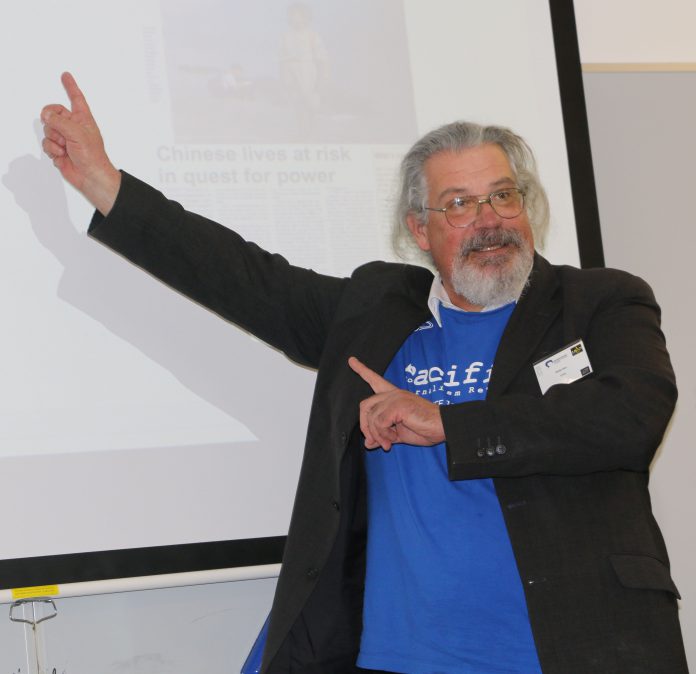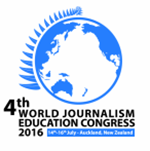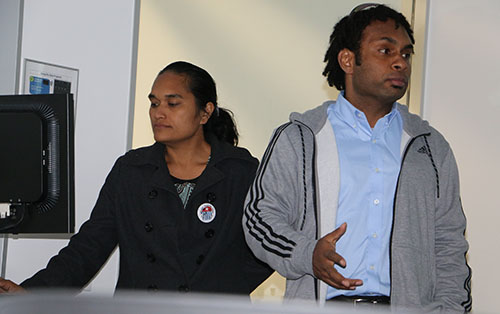
By Kendall Hutt
Work by journalism students across the Pacific was at the centre of talks among educators during one of the panels at the preconference for the 4th World Journalism Education Congress (WJEC) held at the Auckland University of Technology which opened today.
 Journalism educators from across the Pacific highlighted the important role young journalists play in the industry and the region in discussions of news production and research.
Journalism educators from across the Pacific highlighted the important role young journalists play in the industry and the region in discussions of news production and research.
Professor Philip Cass, a senior lecturer in communication studies at Unitec, yesterday talked about the importance of student newspapers in journalism education for providing students with an outlet that allows them to explore their creativity as budding journalists as he discussed the evolution of student-run newspapers such as Felix Culpa and the award-winning Wansolwara.
He did however, stress the importance of having a lecturer “crazy enough” to make a student newspaper work.
‘Journalism as research’
Dr Lee Duffield of the Queensland University of Technology, highlighted the potential of student’s work to become “journalism as research” in his discussions of a case study in which six of his journalism students reflected on their coverage of New Caledonia and Vanuatu by “reading” into their stories.
Duffield’s talk engaged with the concept of journalism as the first rough draft of history, and the subsequent potential for journalists’ stories to become research in their own right.

A presentation by Eliki Drugunalevu and Irene Manarae of the University of the South Pacific (USP) reflected on the integral role Radio Pasifik has played in the education of USP’s journalism students.
Despite the rather ad hoc nature of the station’s funding, noted by both as a constraint and challenge, students have praised the practical skills the station provides, with one former student commenting it allowed them to practice at industry level.
Drugunalevu and Manarae revealed that the training facility intends to explore an “external broadcast footprint” to greater Suva and potentially invest in live streaming.
Media and mines
Research presented by freelance New Caledonian journalist Nicole Gooch was a slight departure from the topics of her peers, but revealed some important insights nonetheless.
Her research, the subject of a scholarship from the Journalism Education and Research Association of Australia (JEERA), highlighted a lack among media worldwide to report on the ‘warning signs’ of a disaster in the face of a case study in to the coverage of Brazil’s Samarco mining disaster and that of New Caledonia’s Goro disaster.
Gooch found coverage of the disasters had been largely relegated to the business sections, which subsequently excluded the resettlement process and impact on families.
She said coverage was symptomatic of the media’s current trajectory in reporting global crises and highlighted the fact the media needed to “shine a spotlight” on the warning signs leading up to a disaster.
The World Journalism Education Congress opened today.
















































